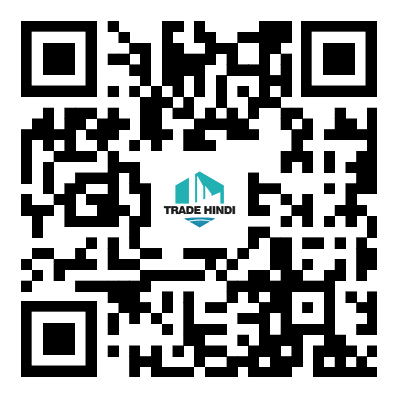Why Is PTFE Sewing Thread a Must-Have for High-Performance Sewing Projects?
2024-11-19
When it comes to sewing, whether for industrial, commercial, or high-end crafting applications, the quality of thread can make all the difference. One type of thread that stands out for its exceptional properties and performance is PTFE sewing thread. But what exactly makes PTFE sewing thread so special, and why should it be your go-to choice for demanding projects? In this blog, we’ll dive into the unique features of PTFE sewing thread and why it might just be the best investment for your sewing needs.
What is PTFE Sewing Thread?
PTFE, or polytetrafluoroethylene, is a synthetic fluoropolymer commonly known for its non-stick properties, heat resistance, and chemical durability. PTFE sewing thread is made by coating fibers, usually polyester, with PTFE to combine the benefits of both materials. The result is a thread that boasts exceptional strength, resistance to extreme temperatures, and excellent resistance to abrasion, chemicals, and UV rays.
Often used in high-performance industries such as automotive, aerospace, medical, and marine, PTFE sewing thread is designed to withstand harsh conditions and provide long-lasting, reliable performance.
What Makes PTFE Sewing Thread Stand Out?
1. Exceptional Durability and Strength
One of the most significant advantages of PTFE sewing thread is its unmatched durability. PTFE fibers are incredibly resistant to wear and tear, making them ideal for applications where the thread will be exposed to heavy use, harsh weather, or challenging environments. The strength of PTFE sewing thread ensures that your stitches stay intact, even under intense stress or movement.
This makes PTFE sewing thread an excellent choice for projects like upholstery, outdoor gear, tents, and industrial applications where the thread will face extreme conditions.
2. Heat and Flame Resistance
PTFE is widely known for its ability to withstand high temperatures without breaking down or losing its structural integrity. PTFE sewing thread retains its properties even in heat-heavy environments, making it the preferred option for industries like automotive and aerospace, where materials are exposed to heat or flames.
Whether you're sewing parts for a high-temperature engine or working with fabrics that need to endure intense heat (like fire-resistant clothing or thermal insulation), PTFE thread ensures long-lasting, reliable results.
3. Chemical and Corrosion Resistance
Another major benefit of PTFE sewing thread is its exceptional resistance to a wide variety of chemicals and corrosion. The PTFE coating prevents the thread from deteriorating in the presence of acids, alkalis, solvents, or other aggressive substances. This makes PTFE thread perfect for use in environments where fabrics or materials may come into contact with harsh chemicals or oils.
Industries such as chemical processing, marine, and oil & gas rely on PTFE thread to ensure their products are durable, even when exposed to challenging substances.
4. UV and Weather Resistance
PTFE threads are highly resistant to UV degradation, making them ideal for outdoor applications where exposure to the sun is inevitable. Traditional sewing threads may weaken, fade, or break down over time when exposed to UV rays, but PTFE sewing thread maintains its integrity and strength, even after prolonged sun exposure.
This makes PTFE thread a go-to material for outdoor furniture, marine equipment, tents, and tarps, ensuring that your projects remain intact and durable through various weather conditions.
5. Low Friction and Smooth Finish
PTFE’s non-stick properties also translate to reduced friction in PTFE sewing thread. This results in a smoother finish during the sewing process and reduces the risk of thread breakage, especially when working with delicate or heavy fabrics. The smoothness of the thread allows for efficient stitching, even at high speeds, without the need for additional lubricants or treatments.
This feature is particularly beneficial for high-speed industrial sewing machines, where consistent, smooth stitching is crucial for productivity and efficiency.
Where Can You Use PTFE Sewing Thread?
Due to its unique properties, PTFE sewing thread is used across a variety of applications that demand durability, heat resistance, and chemical protection. Some of the key areas where PTFE thread excels include:
- Automotive Industry: For sewing materials like seat covers, upholstery, and engine components that must withstand high temperatures, chemicals, and wear.
- Aerospace: For stitching parts that require flame resistance, UV stability, and overall durability.
- Marine: For outdoor gear, sails, and marine upholstery that face constant exposure to UV rays, saltwater, and harsh weather conditions.
- Medical and Pharmaceutical: For sewing medical textiles, surgical drapes, and gowns that need to be resistant to chemicals, heat, and other harsh conditions.
- Outdoor Gear and Tents: For stitching fabrics that must endure extreme outdoor conditions, such as backpacks, tents, and tarps.
Conclusion: Should You Choose PTFE Sewing Thread for Your Next Project?
If you're working on a project that requires durability, heat resistance, chemical protection, and long-term reliability, PTFE sewing thread is undoubtedly the right choice. Its superior strength, resistance to extreme environments, and smooth stitching capabilities make it a game-changer for both industrial and personal sewing applications.
Whether you’re in the automotive, aerospace, medical, or outdoor gear industries—or simply working on a DIY project that demands top-notch performance—PTFE sewing thread ensures your work will stand the test of time.
So, why settle for ordinary threads when you can invest in a material that offers high performance, lasting durability, and peace of mind? Choose PTFE sewing thread for your next project and experience the difference it makes.



